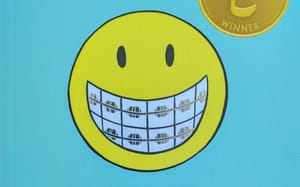A while ago I was interested to observe that I had begun to resist buying paperback novels. Before that, I would often come away with one from a trip to our local Border’s (sadly now closing) or sometimes buy a mystery novel in the airport (especially on the return trip when good intentions about working on the plane were likely to dissolve).
In thinking about it, I realised that I only wanted to buy the experience not the physical item. My bag and our house is already cluttered enough. I wanted the few hours entertainment the book provided, not the small burden of owning a bundle of paper to be shelved.
Now, of course there are also books I do want to own. In fact, I can observe what is almost a counter trend here. I will sometimes buy a book in lieu of reading it, or in anticipation of reading it sometime in the future. This is the case with, for example, with Triumph of city by Ed Glaeser which I mentioned in these pages recently. I saw a positive reference to it, it relates to an interest I have, and it is a several click operation to buy a book. I skimmed it when it arrived and put it on the shelf where it waits to be read. This may very well be a transitional form of behavior as frameworks within which to manage digital collections of books mature.
I have owned a Kindle for a little while now. If I want to buy the experience but not the object, then it is a Kindle purchase.
The Kindle has another advantage, which I have been surprised not to see more widely noted. It is nice to highlight passages which can be clipped and made available to you on the web. Historically, I transcribed passages from books I read into notebooks (now mostly disappeared), and my books at home are ‘enhanced’ with penciled marks indicating interesting passages. The Kindle functionality is very useful in this context: it effectively transcribes passages and makes them available to you in an organised way.
Putting these together raises an obvious requirement. I am unlikely to bring the Glaeser book on a trip because it is a more bulky book than I am now prepared to carry. However, I would be interested in reading it on the Kindle. And I would also like to be able to save passages from it to the network for future reference or use. The Kindle version is cheaper than the hardback which interestingly is cheaper than the paperback. But there appears to be no discount for the customer who would like to buy both Kindle and one of the two paper versions. Now, I am unlikely to want to do this for very many books but there are cases where it would be a worthwhile option. I assume we will see it offered more widely in due course.
Coda: Of course, ebooks raise important policy and business issues for libraries, which I do not talk about here. Eric Hellman’s blog provides a useful place to track some of these issues. Here is his discussion of the controversial recent Harper Collins announcement for example.
Picture: I took the feature picture at the IFLA meeting in Wroclaw, Poland.
Note: Cosmetic stylistic changes and feature picture added 9 November 2022.




